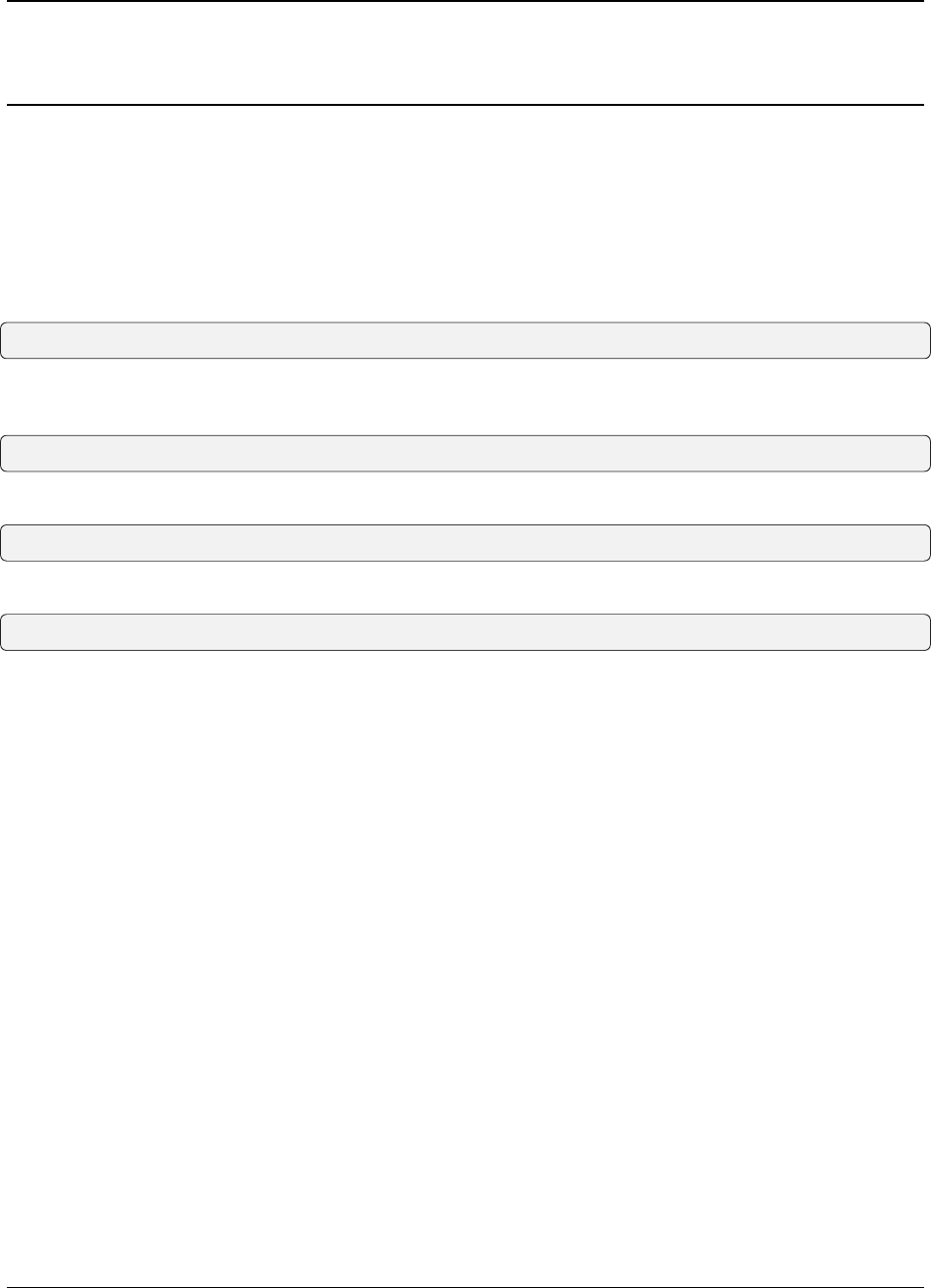
flask-jwt-extended Documentation
Release 4.6.0
vimalloc rlam3
Dec 13, 2023

CONTENTS
1 Installation 1
2 Basic Usage 3
3 Automatic User Loading 7
4 Storing Additional Data in JWTs 11
5 Partially protecting routes 13
6 JWT Locations 15
6.1 Headers . . . . . . . . . . . . . . . . . . . . . . . . . . . . . . . . . . . . . . . . . . . . . . . . . . 16
6.2 Cookies . . . . . . . . . . . . . . . . . . . . . . . . . . . . . . . . . . . . . . . . . . . . . . . . . . 17
6.3 Query String . . . . . . . . . . . . . . . . . . . . . . . . . . . . . . . . . . . . . . . . . . . . . . . 18
6.4 JSON Body . . . . . . . . . . . . . . . . . . . . . . . . . . . . . . . . . . . . . . . . . . . . . . . . 18
7 Refreshing Tokens 21
7.1 Implicit Refreshing With Cookies . . . . . . . . . . . . . . . . . . . . . . . . . . . . . . . . . . . . 21
7.2 Explicit Refreshing With Refresh Tokens . . . . . . . . . . . . . . . . . . . . . . . . . . . . . . . . 23
7.3 Token Freshness Pattern . . . . . . . . . . . . . . . . . . . . . . . . . . . . . . . . . . . . . . . . . 24
8 JWT Revoking / Blocklist 27
8.1 Redis . . . . . . . . . . . . . . . . . . . . . . . . . . . . . . . . . . . . . . . . . . . . . . . . . . . 27
8.2 Database . . . . . . . . . . . . . . . . . . . . . . . . . . . . . . . . . . . . . . . . . . . . . . . . . 29
8.3 Revoking Refresh Tokens . . . . . . . . . . . . . . . . . . . . . . . . . . . . . . . . . . . . . . . . 30
9 Configuration Options 33
9.1 Overview: . . . . . . . . . . . . . . . . . . . . . . . . . . . . . . . . . . . . . . . . . . . . . . . . 33
9.2 General Options: . . . . . . . . . . . . . . . . . . . . . . . . . . . . . . . . . . . . . . . . . . . . . 34
9.3 Header Options: . . . . . . . . . . . . . . . . . . . . . . . . . . . . . . . . . . . . . . . . . . . . . 36
9.4 Cookie Options: . . . . . . . . . . . . . . . . . . . . . . . . . . . . . . . . . . . . . . . . . . . . . 37
9.5 Cross Site Request Forgery Options: . . . . . . . . . . . . . . . . . . . . . . . . . . . . . . . . . . . 38
9.6 Query String Options: . . . . . . . . . . . . . . . . . . . . . . . . . . . . . . . . . . . . . . . . . . 39
9.7 JSON Body Options: . . . . . . . . . . . . . . . . . . . . . . . . . . . . . . . . . . . . . . . . . . . 39
10 Changing Default Behaviors 41
11 Custom Decorators 43
12 API Documentation 45
12.1 Configuring Flask-JWT-Extended . . . . . . . . . . . . . . . . . . . . . . . . . . . . . . . . . . . . 45
12.2 Verify Tokens in Request . . . . . . . . . . . . . . . . . . . . . . . . . . . . . . . . . . . . . . . . . 48
i

12.3 Utilities . . . . . . . . . . . . . . . . . . . . . . . . . . . . . . . . . . . . . . . . . . . . . . . . . . 49
13 4.0.0 Breaking Changes and Upgrade Guide 53
13.1 Encoded JWT Changes (IMPORTANT) . . . . . . . . . . . . . . . . . . . . . . . . . . . . . . . . . 53
13.2 General Changes . . . . . . . . . . . . . . . . . . . . . . . . . . . . . . . . . . . . . . . . . . . . . 53
13.3 Blacklist Changes . . . . . . . . . . . . . . . . . . . . . . . . . . . . . . . . . . . . . . . . . . . . 54
13.4 Callback Function Changes . . . . . . . . . . . . . . . . . . . . . . . . . . . . . . . . . . . . . . . 54
13.5 API Changes . . . . . . . . . . . . . . . . . . . . . . . . . . . . . . . . . . . . . . . . . . . . . . . 55
13.6 New Stuff . . . . . . . . . . . . . . . . . . . . . . . . . . . . . . . . . . . . . . . . . . . . . . . . . 55
Python Module Index 57
Index 59
ii

CHAPTER
ONE
INSTALLATION
The easiest way to start working with this extension with pip:
$ pip install flask-jwt-extended
If you want to use asymmetric (public/private) key signing algorithms, include the asymmetric_crypto extra require-
ments.
$ pip install flask-jwt-extended[asymmetric_crypto]
Note that if you are using ZSH (probably other shells as well), you will need to escape the brackets
$ pip install flask-jwt-extended\[asymmetric_crypto\]
If you prefer to install from source, you can clone this repo and run
$ python setup.py install
1

flask-jwt-extended Documentation, Release 4.6.0
2 Chapter 1. Installation

CHAPTER
TWO
BASIC USAGE
In its simplest form, there is not much to using this extension. You use create_access_token() to make JSON Web
Tokens, jwt_required() to protect routes, and get_jwt_identity() to get the identity of a JWT in a protected
route.
from flask import Flask
from flask import jsonify
from flask import request
from flask_jwt_extended import create_access_token
from flask_jwt_extended import get_jwt_identity
from flask_jwt_extended import jwt_required
from flask_jwt_extended import JWTManager
app = Flask(__name__)
# Setup the Flask-JWT-Extended extension
app.config["JWT_SECRET_KEY"] = "super-secret" # Change this!
jwt = JWTManager(app)
# Create a route to authenticate your users and return JWTs. The
# create_access_token() function is used to actually generate the JWT.
@app.route("/login", methods=["POST"])
def login():
username = request.json.get("username", None)
password = request.json.get("password", None)
if username != "test" or password != "test":
return jsonify({"msg": "Bad username or password"}), 401
access_token = create_access_token(identity=username)
return jsonify(access_token=access_token)
# Protect a route with jwt_required, which will kick out requests
# without a valid JWT present.
@app.route("/protected", methods=["GET"])
@jwt_required()
def protected():
# Access the identity of the current user with get_jwt_identity
current_user = get_jwt_identity()
(continues on next page)
3

flask-jwt-extended Documentation, Release 4.6.0
(continued from previous page)
return jsonify(logged_in_as=current_user), 200
if __name__ == "__main__":
app.run()
To access a jwt_required protected view you need to send in the JWT with each request. By default, this is done with
an authorization header that looks like:
Authorization: Bearer <access_token>
We can see this in action using HTTPie.
$ http GET :5000/protected
HTTP/1.0 401 UNAUTHORIZED
Content-Length: 39
Content-Type: application/json
Date: Sun, 24 Jan 2021 18:09:17 GMT
Server: Werkzeug/1.0.1 Python/3.8.6
{
"msg": "Missing Authorization Header"
}
$ http POST :5000/login username=test password=test
HTTP/1.0 200 OK
Content-Length: 288
Content-Type: application/json
Date: Sun, 24 Jan 2021 18:10:39 GMT
Server: Werkzeug/1.0.1 Python/3.8.6
{
"access_token": "eyJ0eXAiOiJKV1QiLCJhbGciOiJIUzI1NiJ9.
˓→eyJmcmVzaCI6ZmFsc2UsImlhdCI6MTYxMTUxMTgzOSwianRpIjoiMmI0NzliNTQtYTI0OS00ZDNjLWE4NjItZGVkZGIzODljNmVlIiwibmJmIjoxNjExNTExODM5LCJ0eXBlIjoiYWNjZXNzIiwic3ViIjoidGVzdCIsImV4cCI6MTYxNDEwMzgzOX0.
˓→UpTueBRwNLK8e-06-oo5Y_9eWbaN5T3IHwKsy6Jauaw"
}
$ export JWT="eyJ0eXAiOiJKV1QiLCJhbGciOiJIUzI1NiJ9.
˓→eyJmcmVzaCI6ZmFsc2UsImlhdCI6MTYxMTUxMTgzOSwianRpIjoiMmI0NzliNTQtYTI0OS00ZDNjLWE4NjItZGVkZGIzODljNmVlIiwibmJmIjoxNjExNTExODM5LCJ0eXBlIjoiYWNjZXNzIiwic3ViIjoidGVzdCIsImV4cCI6MTYxNDEwMzgzOX0.
˓→UpTueBRwNLK8e-06-oo5Y_9eWbaN5T3IHwKsy6Jauaw"
$ http GET :5000/protected Authorization:"Bearer $JWT"
HTTP/1.0 200 OK
Content-Length: 24
Content-Type: application/json
Date: Sun, 24 Jan 2021 18:12:02 GMT
(continues on next page)
4 Chapter 2. Basic Usage

flask-jwt-extended Documentation, Release 4.6.0
(continued from previous page)
Server: Werkzeug/1.0.1 Python/3.8.6
{
"logged_in_as": "test"
}
Important
Remember to change the JWT secret key in your application, and ensure that it is secure. The JWTs are signed with
this key, and if someone gets their hands on it they will be able to create arbitrary tokens that are accepted by your web
flask application.
5

flask-jwt-extended Documentation, Release 4.6.0
6 Chapter 2. Basic Usage

CHAPTER
THREE
AUTOMATIC USER LOADING
In most web applications it is important to have access to the user who is accessing a protected route. We provide a
couple callback functions that make this seamless while working with JWTs.
The first is user_identity_loader(), which will convert any User object used to create a JWT into a JSON serial-
izable format.
On the flip side, you can use user_lookup_loader() to automatically load your User object when a JWT is present
in the request. The loaded user is available in your protected routes via current_user.
Lets see an example of this while utilizing SQLAlchemy to store our users:
from hmac import compare_digest
from flask import Flask
from flask import jsonify
from flask import request
from flask_sqlalchemy import SQLAlchemy
from flask_jwt_extended import create_access_token
from flask_jwt_extended import current_user
from flask_jwt_extended import jwt_required
from flask_jwt_extended import JWTManager
app = Flask(__name__)
app.config["JWT_SECRET_KEY"] = "super-secret" # Change this!
app.config["SQLALCHEMY_DATABASE_URI"] = "sqlite://"
app.config["SQLALCHEMY_TRACK_MODIFICATIONS"] = False
jwt = JWTManager(app)
db = SQLAlchemy(app)
class User(db.Model):
id = db.Column(db.Integer, primary_key=True)
username = db.Column(db.Text, nullable=False, unique=True)
full_name = db.Column(db.Text, nullable=False)
# NOTE: In a real application make sure to properly hash and salt passwords
(continues on next page)
7

flask-jwt-extended Documentation, Release 4.6.0
(continued from previous page)
def check_password(self, password):
return compare_digest(password, "password")
# Register a callback function that takes whatever object is passed in as the
# identity when creating JWTs and converts it to a JSON serializable format.
@jwt.user_identity_loader
def user_identity_lookup(user):
return user.id
# Register a callback function that loads a user from your database whenever
# a protected route is accessed. This should return any python object on a
# successful lookup, or None if the lookup failed for any reason (for example
# if the user has been deleted from the database).
@jwt.user_lookup_loader
def user_lookup_callback(_jwt_header, jwt_data):
identity = jwt_data["sub"]
return User.query.filter_by(id=identity).one_or_none()
@app.route("/login", methods=["POST"])
def login():
username = request.json.get("username", None)
password = request.json.get("password", None)
user = User.query.filter_by(username=username).one_or_none()
if not user or not user.check_password(password):
return jsonify("Wrong username or password"), 401
# Notice that we are passing in the actual sqlalchemy user object here
access_token = create_access_token(identity=user)
return jsonify(access_token=access_token)
@app.route("/who_am_i", methods=["GET"])
@jwt_required()
def protected():
# We can now access our sqlalchemy User object via `current_user`.
return jsonify(
id=current_user.id,
full_name=current_user.full_name,
username=current_user.username,
)
if __name__ == "__main__":
db.create_all()
db.session.add(User(full_name="Bruce Wayne", username="batman"))
db.session.add(User(full_name="Ann Takamaki", username="panther"))
db.session.add(User(full_name="Jester Lavore", username="little_sapphire"))
db.session.commit()
(continues on next page)
8 Chapter 3. Automatic User Loading

flask-jwt-extended Documentation, Release 4.6.0
(continued from previous page)
app.run()
We can see this in action using HTTPie.
$ http POST :5000/login username=panther password=password
HTTP/1.0 200 OK
Content-Length: 281
Content-Type: application/json
Date: Sun, 24 Jan 2021 17:23:31 GMT
Server: Werkzeug/1.0.1 Python/3.8.6
{
"access_token": "eyJ0eXAiOiJKV1QiLCJhbGciOiJIUzI1NiJ9.
˓→eyJmcmVzaCI6ZmFsc2UsImlhdCI6MTYxMTUwOTAxMSwianRpIjoiNGFmN2ViNTAtMjk3Yy00ZmY4LWJmOTYtMTZlMDE5MWEzYzMwIiwibmJmIjoxNjExNTA5MDExLCJ0eXBlIjoiYWNjZXNzIiwic3ViIjoyLCJleHAiOjE2MTQxMDEwMTF9.
˓→2UhZo-xo19NXaqKLwcMz0NBLAcxxEUeK4Ziqk1T_9h0"
}
$ export JWT="eyJ0eXAiOiJKV1QiLCJhbGciOiJIUzI1NiJ9.
˓→eyJmcmVzaCI6ZmFsc2UsImlhdCI6MTYxMTUwOTAxMSwianRpIjoiNGFmN2ViNTAtMjk3Yy00ZmY4LWJmOTYtMTZlMDE5MWEzYzMwIiwibmJmIjoxNjExNTA5MDExLCJ0eXBlIjoiYWNjZXNzIiwic3ViIjoyLCJleHAiOjE2MTQxMDEwMTF9.
˓→2UhZo-xo19NXaqKLwcMz0NBLAcxxEUeK4Ziqk1T_9h0"
$ http GET :5000/who_am_i Authorization:"Bearer $JWT"
HTTP/1.0 200 OK
Content-Length: 57
Content-Type: application/json
Date: Sun, 24 Jan 2021 17:31:34 GMT
Server: Werkzeug/1.0.1 Python/3.8.6
{
"id": 2,
"full_name": "Ann Takamaki",
"username": "panther"
}
9

flask-jwt-extended Documentation, Release 4.6.0
10 Chapter 3. Automatic User Loading

CHAPTER
FOUR
STORING ADDITIONAL DATA IN JWTS
You may want to store additional information in the access token which you could later access in the pro-
tected views. This can be done using the additional_claims argument with the create_access_token() or
create_refresh_token() functions. The claims can be accessed in a protected route via the get_jwt() function.
It is important to remember that JWTs are not encrypted and the contents of a JWT can be trivially decoded by anyone
who has access to it. As such, you should never put any sensitive information in a JWT.
from flask import Flask
from flask import jsonify
from flask import request
from flask_jwt_extended import create_access_token
from flask_jwt_extended import get_jwt
from flask_jwt_extended import jwt_required
from flask_jwt_extended import JWTManager
app = Flask(__name__)
app.config["JWT_SECRET_KEY"] = "super-secret" # Change this!
jwt = JWTManager(app)
@app.route("/login", methods=["POST"])
def login():
username = request.json.get("username", None)
password = request.json.get("password", None)
if username != "test" or password != "test":
return jsonify({"msg": "Bad username or password"}), 401
# You can use the additional_claims argument to either add
# custom claims or override default claims in the JWT.
additional_claims = {"aud": "some_audience", "foo": "bar"}
access_token = create_access_token(username, additional_claims=additional_claims)
return jsonify(access_token=access_token)
# In a protected view, get the claims you added to the jwt with the
# get_jwt() method
@app.route("/protected", methods=["GET"])
@jwt_required()
def protected():
(continues on next page)
11

flask-jwt-extended Documentation, Release 4.6.0
(continued from previous page)
claims = get_jwt()
return jsonify(foo=claims["foo"])
if __name__ == "__main__":
app.run()
Alternately you can use the additional_claims_loader() decorator to register a callback function that will be
called whenever a new JWT is created, and return a dictionary of claims to add to that token. In the case that both
additional_claims_loader() and the additional_claims argument are used, both results are merged together,
with ties going to the data supplied by the additional_claims argument.
# Using the additional_claims_loader, we can specify a method that will be
# called when creating JWTs. The decorated method must take the identity
# we are creating a token for and return a dictionary of additional
# claims to add to the JWT.
@jwt.additional_claims_loader
def add_claims_to_access_token(identity):
return {
"aud": "some_audience",
"foo": "bar",
"upcase_name": identity.upper(),
}
12 Chapter 4. Storing Additional Data in JWTs

CHAPTER
FIVE
PARTIALLY PROTECTING ROUTES
There may be cases where you want to use the same route regardless of if a JWT is present in the request or not. In
these situations, you can use jwt_required() with the optional=True argument. This will allow the endpoint to
be accessed regardless of if a JWT is sent in with the request.
If no JWT is present, get_jwt() and get_jwt_header(), will return an empty dictionary. get_jwt_identity(),
current_user, and get_current_user() will return None.
If a JWT that is expired or not verifiable is in the request, an error will be still returned like normal.
from flask import Flask
from flask import jsonify
from flask import request
from flask_jwt_extended import create_access_token
from flask_jwt_extended import get_jwt_identity
from flask_jwt_extended import jwt_required
from flask_jwt_extended import JWTManager
app = Flask(__name__)
# Setup the Flask-JWT-Extended extension
app.config["JWT_SECRET_KEY"] = "super-secret" # Change this!
jwt = JWTManager(app)
@app.route("/login", methods=["POST"])
def login():
username = request.json.get("username", None)
password = request.json.get("password", None)
if username != "test" or password != "test":
return jsonify({"msg": "Bad username or password"}), 401
access_token = create_access_token(identity=username)
return jsonify(access_token=access_token)
@app.route("/optionally_protected", methods=["GET"])
@jwt_required(optional=True)
def optionally_protected():
current_identity = get_jwt_identity()
if current_identity:
(continues on next page)
13

flask-jwt-extended Documentation, Release 4.6.0
(continued from previous page)
return jsonify(logged_in_as=current_identity)
else:
return jsonify(logged_in_as="anonymous user")
if __name__ == "__main__":
app.run()
14 Chapter 5. Partially protecting routes

CHAPTER
SIX
JWT LOCATIONS
JWTs can be sent in with a request in many different ways. You can control which ways you want to accept JWTs in your
Flask application via the JWT_TOKEN_LOCATION configuration option. You can also override that global configuration
on a per route basis via the locations argument in jwt_required().
from flask import Flask
from flask import jsonify
from flask_jwt_extended import create_access_token
from flask_jwt_extended import jwt_required
from flask_jwt_extended import JWTManager
from flask_jwt_extended import set_access_cookies
from flask_jwt_extended import unset_jwt_cookies
app = Flask(__name__)
# Here you can globally configure all the ways you want to allow JWTs to
# be sent to your web application. By default, this will be only headers.
app.config["JWT_TOKEN_LOCATION"] = ["headers", "cookies", "json", "query_string"]
# If true this will only allow the cookies that contain your JWTs to be sent
# over https. In production, this should always be set to True
app.config["JWT_COOKIE_SECURE"] = False
# Change this in your code!
app.config["JWT_SECRET_KEY"] = "super-secret"
jwt = JWTManager(app)
@app.route("/login_without_cookies", methods=["POST"])
def login_without_cookies():
access_token = create_access_token(identity="example_user")
return jsonify(access_token=access_token)
@app.route("/login_with_cookies", methods=["POST"])
def login_with_cookies():
response = jsonify({"msg": "login successful"})
access_token = create_access_token(identity="example_user")
set_access_cookies(response, access_token)
(continues on next page)
15

flask-jwt-extended Documentation, Release 4.6.0
(continued from previous page)
return response
@app.route("/logout_with_cookies", methods=["POST"])
def logout_with_cookies():
response = jsonify({"msg": "logout successful"})
unset_jwt_cookies(response)
return response
@app.route("/protected", methods=["GET", "POST"])
@jwt_required()
def protected():
return jsonify(foo="bar")
@app.route("/only_headers")
@jwt_required(locations=["headers"])
def only_headers():
return jsonify(foo="baz")
if __name__ == "__main__":
app.run()
Lets take a look at how you could utilize all of these locations using some javascript in a web browser.
6.1 Headers
Working JWTs via headers is a pretty simple process. All you need to do is store the token when you login, and add
the token as a header each time you make a request to a protected route. Logging out is as simple as deleting the token.
async function login() {
const response = await fetch('/login_without_cookies', {method: 'post'});
const result = await response.json();
localStorage.setItem('jwt', result.access_token);
}
function logout() {
localStorage.removeItem('jwt');
}
async function makeRequestWithJWT() {
const options = {
method: 'post',
headers: {
Authorization: `Bearer ${localStorage.getItem('jwt')}`,
}
};
const response = await fetch('/protected', options);
const result = await response.json();
(continues on next page)
16 Chapter 6. JWT Locations

flask-jwt-extended Documentation, Release 4.6.0
(continued from previous page)
return result;
}
6.2 Cookies
Cookies are a fantastic way of handling JWTs if you are using a web browser. They offer some nice benefits compared
to the headers approach:
• They can be configured to send only over HTTPS. This prevents a JWT from accidentally being sent, and possibly
compromised, over an unsecure connection.
• They are stored in an http-only cookie, which prevents XSS attacks from being able to steal the underlying JWT.
• You Flask application can implicitly refresh JWTs that are close to expiring, which simplifies the logic of keeping
active users logged in. More on this in the next section!
Of course, when using cookies you also need to do some additional work to prevent Cross Site Request Forgery (CSRF)
attacks. In this extension we handle this via something called double submit verification.
The basic idea behind double submit verification is that a JWT coming from a cookie will only be considered valid if
a special double submit token is also present in the request, and that double submit token must not be something that
is automatically sent by a web browser (ie it cannot be another cookie).
By default, we accomplish this by setting two cookies when someone logging in. The first cookie contains the JWT,
and encoded in that JWT is the double submit token. This cookie is set as http-only, so that it cannot be access via
javascript (this is what prevents XSS attacks from being able to steal the JWT). The second cookie we set contains only
the same double submit token, but this time in a cookie that is readable by javascript. Whenever a request is made, it
needs to include an X-CSRF-TOKEN header, with the value of the double submit token. If the value in this header does
not match the value stored in the JWT, the request is kicked out as invalid.
Because the double submit token needs to be present as a header (which wont be automatically sent on a request),
and some malicious javascript running on a different domain will not be able to read the cookie containing the double
submit token on your website, we have successfully thwarted any CSRF attacks.
This does mean that whenever you are making a request, you need to manually include the X-CSRF-TOKEN header,
otherwise your requests will be kicked out as invalid too. Lets look at how to do that:
async function login() {
await fetch('/login_with_cookies', {method: 'post'});
}
async function logout() {
await fetch('/logout_with_cookies', {method: 'post'});
}
function getCookie(name) {
const value = `; ${document.cookie}`;
const parts = value.split(`; ${name}=`);
if (parts.length === 2) return parts.pop().split(';').shift();
}
async function makeRequestWithJWT() {
const options = {
method: 'post',
(continues on next page)
6.2. Cookies 17

flask-jwt-extended Documentation, Release 4.6.0
(continued from previous page)
credentials: 'same-origin',
headers: {
'X-CSRF-TOKEN': getCookie('csrf_access_token'),
},
};
const response = await fetch('/protected', options);
const result = await response.json();
return result;
}
Note that there are additional CSRF options, such as looking for the double submit token in a form, changing cookie
paths, etc, that can be used to tailor things to the needs of your application. See Cross Site Request Forgery Options:
for details.
6.3 Query String
You can also send in the JWT as part of the query string. However, It is very important to note that in most cases we
recommend NOT doing this. It can lead to some non-obvious security issues, such as saving the JWT in a browsers
history or the JWT being logged in your backend server, which could both potentially lead to a compromised token.
However, this feature might provide some limited usefulness, such as sending password reset links, and therefore we
support it in this extension.
async function login() {
const response = await fetch('/login_without_cookies', {method: 'post'});
const result = await response.json();
localStorage.setItem('jwt', result.access_token);
}
function logout() {
localStorage.removeItem('jwt');
}
async function makeRequestWithJWT() {
const jwt = localStorage.getItem('jwt')
const response = await fetch(`/protected?jwt=${jwt}`, {method: 'post'});
const result = await response.json();
return result;
}
6.4 JSON Body
This looks very similar to the Headers approach, except that we send the JWT in as part of the JSON Body instead of
a header. Be aware that HEAD or GET requests cannot have a JSON body as part of the request, so this only works for
actions like POST/PUT/PATCH/DELETE/etc.
Sending JWTs in a JSON body is probably not very useful most of the time, but we include the option for it regardless.
async function login() {
const response = await fetch('/login_without_cookies', {method: 'post'});
(continues on next page)
18 Chapter 6. JWT Locations

flask-jwt-extended Documentation, Release 4.6.0
(continued from previous page)
const result = await response.json();
localStorage.setItem('jwt', result.access_token);
}
function logout() {
localStorage.removeItem('jwt');
}
// Note that if we change the method to `get` this will blow up with a
// "TypeError: Window.fetch: HEAD or GET Request cannot have a body"
async function makeRequestWithJWT() {
const options = {
method: 'post',
body: JSON.stringify({access_token: localStorage.getItem('jwt')}),
headers: {
'Content-Type': 'application/json',
},
};
const response = await fetch('/protected', options);
const result = await response.json();
return result;
}
6.4. JSON Body 19

flask-jwt-extended Documentation, Release 4.6.0
20 Chapter 6. JWT Locations

CHAPTER
SEVEN
REFRESHING TOKENS
In most web applications, it would not be ideal if a user was logged out in the middle of doing something because their
JWT expired. Unfortunately we can’t just change the expires time on a JWT on each request, as once a JWT is created
it cannot be modified. Lets take a look at some options for solving this problem by refreshing JWTs.
7.1 Implicit Refreshing With Cookies
One huge benefit to storing your JWTs in cookies (when your frontend is a website) is that the frontend does not have
to handle any logic when it comes to refreshing a token. It can all happen implicitly with the cookies your Flask
application sets.
The basic idea here is that at the end of every request, we will check if there is a JWT that is close to expiring. If we
find a JWT that is nearly expired, we will replace the current cookie containing the JWT with a new JWT that has a
longer time until it expires.
This is our recommended approach when your frontend is a website.
from datetime import datetime
from datetime import timedelta
from datetime import timezone
from flask import Flask
from flask import jsonify
from flask_jwt_extended import create_access_token
from flask_jwt_extended import get_jwt
from flask_jwt_extended import get_jwt_identity
from flask_jwt_extended import jwt_required
from flask_jwt_extended import JWTManager
from flask_jwt_extended import set_access_cookies
from flask_jwt_extended import unset_jwt_cookies
app = Flask(__name__)
# If true this will only allow the cookies that contain your JWTs to be sent
# over https. In production, this should always be set to True
app.config["JWT_COOKIE_SECURE"] = False
app.config["JWT_TOKEN_LOCATION"] = ["cookies"]
app.config["JWT_SECRET_KEY"] = "super-secret" # Change this in your code!
app.config["JWT_ACCESS_TOKEN_EXPIRES"] = timedelta(hours=1)
(continues on next page)
21

flask-jwt-extended Documentation, Release 4.6.0
(continued from previous page)
jwt = JWTManager(app)
# Using an `after_request` callback, we refresh any token that is within 30
# minutes of expiring. Change the timedeltas to match the needs of your application.
@app.after_request
def refresh_expiring_jwts(response):
try:
exp_timestamp = get_jwt()["exp"]
now = datetime.now(timezone.utc)
target_timestamp = datetime.timestamp(now + timedelta(minutes=30))
if target_timestamp > exp_timestamp:
access_token = create_access_token(identity=get_jwt_identity())
set_access_cookies(response, access_token)
return response
except (RuntimeError, KeyError):
# Case where there is not a valid JWT. Just return the original response
return response
@app.route("/login", methods=["POST"])
def login():
response = jsonify({"msg": "login successful"})
access_token = create_access_token(identity="example_user")
set_access_cookies(response, access_token)
return response
@app.route("/logout", methods=["POST"])
def logout():
response = jsonify({"msg": "logout successful"})
unset_jwt_cookies(response)
return response
@app.route("/protected")
@jwt_required()
def protected():
return jsonify(foo="bar")
if __name__ == "__main__":
app.run()
22 Chapter 7. Refreshing Tokens

flask-jwt-extended Documentation, Release 4.6.0
7.2 Explicit Refreshing With Refresh Tokens
Alternatively, this extension comes out of the box with refresh token support. A refresh token is a long lived JWT that
can only be used to creating new access tokens.
You have a couple choices about how to utilize a refresh token. You could store the expires time of your access token on
your frontend, and each time you make an API request first check if the current access token is near or already expired,
and refresh it as needed. This approach is pretty simple and will work fine in most cases, but do be aware that if your
frontend has a clock that is significantly off, you might run into issues.
An alternative approach involves making an API request with your access token and then checking the result to see if
it worked. If the result of the request is an error message saying that your token is expired, use the refresh token to
generate a new access token and redo the request with the new token. This approach will work regardless of the clock
on your frontend, but it does require having some potentially more complicated logic.
Using refresh tokens is our recommended approach when your frontend is not a website (mobile, api only, etc).
from datetime import timedelta
from flask import Flask
from flask import jsonify
from flask_jwt_extended import create_access_token
from flask_jwt_extended import create_refresh_token
from flask_jwt_extended import get_jwt_identity
from flask_jwt_extended import jwt_required
from flask_jwt_extended import JWTManager
app = Flask(__name__)
app.config["JWT_SECRET_KEY"] = "super-secret" # Change this!
app.config["JWT_ACCESS_TOKEN_EXPIRES"] = timedelta(hours=1)
app.config["JWT_REFRESH_TOKEN_EXPIRES"] = timedelta(days=30)
jwt = JWTManager(app)
@app.route("/login", methods=["POST"])
def login():
access_token = create_access_token(identity="example_user")
refresh_token = create_refresh_token(identity="example_user")
return jsonify(access_token=access_token, refresh_token=refresh_token)
# We are using the `refresh=True` options in jwt_required to only allow
# refresh tokens to access this route.
@app.route("/refresh", methods=["POST"])
@jwt_required(refresh=True)
def refresh():
identity = get_jwt_identity()
access_token = create_access_token(identity=identity)
return jsonify(access_token=access_token)
@app.route("/protected", methods=["GET"])
(continues on next page)
7.2. Explicit Refreshing With Refresh Tokens 23

flask-jwt-extended Documentation, Release 4.6.0
(continued from previous page)
@jwt_required()
def protected():
return jsonify(foo="bar")
if __name__ == "__main__":
app.run()
Making a request with a refresh token looks just like making a request with an access token. Here is an example using
HTTPie.
$ http POST :5000/refresh Authorization:"Bearer $REFRESH_TOKEN"
Warning: Note that when an access token is invalidated (e.g. logging a user out), any corresponding refresh
token(s) must be revoked too. See Revoking Refresh Tokens for details on how to handle this.
7.3 Token Freshness Pattern
The token freshness pattern is a very simple idea. Every time a user authenticates by providing a username and pass-
word, they receive a fresh access token that can access any route. But after some time, that token should no longer be
considered fresh, and some critical or dangerous routes will be blocked until the user verifies their password again.
All other routes will still work normally for the user even though their token is no longer fresh. As an example, we
might not allow users to change their email address unless they have a fresh token, but we do allow them use the rest
of our Flask application normally.
The token freshness pattern is built into this extension, and works seamlessly with both token refreshing strategies
discussed above. Lets take a look at this with the explicit refresh example (it will look basically same in the implicit
refresh example).
from datetime import timedelta
from flask import Flask
from flask import jsonify
from flask import request
from flask_jwt_extended import create_access_token
from flask_jwt_extended import create_refresh_token
from flask_jwt_extended import get_jwt_identity
from flask_jwt_extended import jwt_required
from flask_jwt_extended import JWTManager
app = Flask(__name__)
app.config["JWT_SECRET_KEY"] = "super-secret" # Change this!
app.config["JWT_ACCESS_TOKEN_EXPIRES"] = timedelta(hours=1)
app.config["JWT_REFRESH_TOKEN_EXPIRES"] = timedelta(days=30)
jwt = JWTManager(app)
(continues on next page)
24 Chapter 7. Refreshing Tokens

flask-jwt-extended Documentation, Release 4.6.0
(continued from previous page)
# We verify the users password here, so we are returning a fresh access token
@app.route("/login", methods=["POST"])
def login():
username = request.json.get("username", None)
password = request.json.get("password", None)
if username != "test" or password != "test":
return jsonify({"msg": "Bad username or password"}), 401
access_token = create_access_token(identity="example_user", fresh=True)
refresh_token = create_refresh_token(identity="example_user")
return jsonify(access_token=access_token, refresh_token=refresh_token)
# If we are refreshing a token here we have not verified the users password in
# a while, so mark the newly created access token as not fresh
@app.route("/refresh", methods=["POST"])
@jwt_required(refresh=True)
def refresh():
identity = get_jwt_identity()
access_token = create_access_token(identity=identity, fresh=False)
return jsonify(access_token=access_token)
# Only allow fresh JWTs to access this route with the `fresh=True` arguement.
@app.route("/protected", methods=["GET"])
@jwt_required(fresh=True)
def protected():
return jsonify(foo="bar")
if __name__ == "__main__":
app.run()
We also support marking a token as fresh for a given amount of time after it is created. You can do this by passing a
datetime.timedelta to the fresh option when creating JWTs:
create_access_token(identity, fresh=datetime.timedelta(minutes=15))
7.3. Token Freshness Pattern 25

flask-jwt-extended Documentation, Release 4.6.0
26 Chapter 7. Refreshing Tokens

CHAPTER
EIGHT
JWT REVOKING / BLOCKLIST
JWT revoking is a mechanism for preventing an otherwise valid JWT from accessing your routes while still let-
ting other valid JWTs in. To utilize JWT revoking in this extension, you must define a callback function via the
token_in_blocklist_loader() decorator. This function is called whenever a valid JWT is used to access a pro-
tected route. The callback will receive the JWT header and JWT payload as arguments, and must return True if the
JWT has been revoked.
In production, you will want to use some form of persistent storage (database, redis, etc) to store your JWTs. It would be
bad if your application forgot that a JWT was revoked if it was restarted. We can provide some general recommendations
on what type of storage engine to use, but ultimately the choice will depend on your specific application and tech stack.
8.1 Redis
If your only requirements are to check if a JWT has been revoked, our recommendation is to use redis. It is blazing
fast, can be configured to persist data to disc, and can automatically clear out JWTs after they expire by utilizing the
Time To Live (TTL) functionality when storing a JWT. Here is an example using redis:
from datetime import timedelta
import redis
from flask import Flask
from flask import jsonify
from flask_jwt_extended import create_access_token
from flask_jwt_extended import get_jwt
from flask_jwt_extended import jwt_required
from flask_jwt_extended import JWTManager
ACCESS_EXPIRES = timedelta(hours=1)
app = Flask(__name__)
app.config["JWT_SECRET_KEY"] = "super-secret" # Change this!
app.config["JWT_ACCESS_TOKEN_EXPIRES"] = ACCESS_EXPIRES
jwt = JWTManager(app)
# Setup our redis connection for storing the blocklisted tokens. You will probably
# want your redis instance configured to persist data to disk, so that a restart
# does not cause your application to forget that a JWT was revoked.
jwt_redis_blocklist = redis.StrictRedis(
host="localhost", port=6379, db=0, decode_responses=True
(continues on next page)
27

flask-jwt-extended Documentation, Release 4.6.0
(continued from previous page)
)
# Callback function to check if a JWT exists in the redis blocklist
@jwt.token_in_blocklist_loader
def check_if_token_is_revoked(jwt_header, jwt_payload: dict):
jti = jwt_payload["jti"]
token_in_redis = jwt_redis_blocklist.get(jti)
return token_in_redis is not None
@app.route("/login", methods=["POST"])
def login():
access_token = create_access_token(identity="example_user")
return jsonify(access_token=access_token)
# Endpoint for revoking the current users access token. Save the JWTs unique
# identifier (jti) in redis. Also set a Time to Live (TTL) when storing the JWT
# so that it will automatically be cleared out of redis after the token expires.
@app.route("/logout", methods=["DELETE"])
@jwt_required()
def logout():
jti = get_jwt()["jti"]
jwt_redis_blocklist.set(jti, "", ex=ACCESS_EXPIRES)
return jsonify(msg="Access token revoked")
# A blocklisted access token will not be able to access this any more
@app.route("/protected", methods=["GET"])
@jwt_required()
def protected():
return jsonify(hello="world")
if __name__ == "__main__":
app.run()
Warning: Note that configuring redis to be disk-persistent is an absolutely necessity for production use. Other-
wise, events like power outages or server crashes/reboots would cause all invalidated tokens to become valid again
(assuming the secret key does not change). This is especially concering for long-lived refresh tokens, discussed
below.
28 Chapter 8. JWT Revoking / Blocklist

flask-jwt-extended Documentation, Release 4.6.0
8.2 Database
If you need to keep track of information about revoked JWTs our recommendation is to utilize a database. This allows
you to easily store and utilize metadata for revoked tokens, such as when it was revoked, who revoked it, can it be
un-revoked, etc. Here is an example using SQLAlchemy:
from datetime import datetime
from datetime import timedelta
from datetime import timezone
from flask import Flask
from flask import jsonify
from flask_sqlalchemy import SQLAlchemy
from flask_jwt_extended import create_access_token
from flask_jwt_extended import get_jwt
from flask_jwt_extended import jwt_required
from flask_jwt_extended import JWTManager
app = Flask(__name__)
ACCESS_EXPIRES = timedelta(hours=1)
app.config["JWT_SECRET_KEY"] = "super-secret" # Change this!
app.config["JWT_ACCESS_TOKEN_EXPIRES"] = ACCESS_EXPIRES
jwt = JWTManager(app)
# We are using an in memory database here as an example. Make sure to use a
# database with persistent storage in production!
app.config["SQLALCHEMY_DATABASE_URI"] = "sqlite://"
app.config["SQLALCHEMY_TRACK_MODIFICATIONS"] = False
db = SQLAlchemy(app)
# This could be expanded to fit the needs of your application. For example,
# it could track who revoked a JWT, when a token expires, notes for why a
# JWT was revoked, an endpoint to un-revoked a JWT, etc.
# Making jti an index can significantly speed up the search when there are
# tens of thousands of records. Remember this query will happen for every
# (protected) request,
# If your database supports a UUID type, this can be used for the jti column
# as well
class TokenBlocklist(db.Model):
id = db.Column(db.Integer, primary_key=True)
jti = db.Column(db.String(36), nullable=False, index=True)
created_at = db.Column(db.DateTime, nullable=False)
# Callback function to check if a JWT exists in the database blocklist
@jwt.token_in_blocklist_loader
def check_if_token_revoked(jwt_header, jwt_payload: dict) -> bool:
jti = jwt_payload["jti"]
token = db.session.query(TokenBlocklist.id).filter_by(jti=jti).scalar()
(continues on next page)
8.2. Database 29

flask-jwt-extended Documentation, Release 4.6.0
(continued from previous page)
return token is not None
@app.route("/login", methods=["POST"])
def login():
access_token = create_access_token(identity="example_user")
return jsonify(access_token=access_token)
# Endpoint for revoking the current users access token. Saved the unique
# identifier (jti) for the JWT into our database.
@app.route("/logout", methods=["DELETE"])
@jwt_required()
def modify_token():
jti = get_jwt()["jti"]
now = datetime.now(timezone.utc)
db.session.add(TokenBlocklist(jti=jti, created_at=now))
db.session.commit()
return jsonify(msg="JWT revoked")
# A blocklisted access token will not be able to access this any more
@app.route("/protected", methods=["GET"])
@jwt_required()
def protected():
return jsonify(hello="world")
if __name__ == "__main__":
db.create_all()
app.run()
8.3 Revoking Refresh Tokens
It is critical to note that a user’s refresh token must also be revoked when logging out; otherwise, this refresh token
could just be used to generate a new access token. Usually this falls to the responsibility of the frontend application,
which must send two separate requests to the backend in order to revoke these tokens.
This can be implemented via two separate routes marked with @jwt_required() and
@jwt_required(refresh=True) to revoke access and refresh tokens, respectively. However, it is more con-
venient to provide a single endpoint where the frontend can send a DELETE for each token. The following is an
example:
@app.route("/logout", methods=["DELETE"])
@jwt_required(verify_type=False)
def logout():
token = get_jwt()
jti = token["jti"]
ttype = token["type"]
jwt_redis_blocklist.set(jti, "", ex=ACCESS_EXPIRES)
(continues on next page)
30 Chapter 8. JWT Revoking / Blocklist

flask-jwt-extended Documentation, Release 4.6.0
(continued from previous page)
# Returns "Access token revoked" or "Refresh token revoked"
return jsonify(msg=f"{ttype.capitalize()} token successfully revoked")
or, for the database format:
class TokenBlocklist(db.Model):
id = db.Column(db.Integer, primary_key=True)
jti = db.Column(db.String(36), nullable=False, index=True)
type = db.Column(db.String(16), nullable=False)
user_id = db.Column(
db.ForeignKey('person.id'),
default=lambda: get_current_user().id,
nullable=False,
)
created_at = db.Column(
db.DateTime,
server_default=func.now(),
nullable=False,
)
@app.route("/logout", methods=["DELETE"])
@jwt_required(verify_type=False)
def modify_token():
token = get_jwt()
jti = token["jti"]
ttype = token["type"]
now = datetime.now(timezone.utc)
db.session.add(TokenBlocklist(jti=jti, type=ttype, created_at=now))
db.session.commit()
return jsonify(msg=f"{ttype.capitalize()} token successfully revoked")
Token type and user columns are not required and can be omitted. That being said, including these can help to audit
that the frontend is performing its revoking job correctly and revoking both tokens.
Alternatively, there are a few ways to revoke both tokens at once:
1. Send the access token in the header (per usual), and send the refresh token in the DELETE request body. This
saves a request but still needs frontend changes, so may not be worth implementing
2. Embed the refresh token’s jti in the access token. The revoke route should be authenticated with the access
token. Upon revoking the access token, extract the refresh jti from it and invalidate both. This has the advantage
of requiring no extra work from the frontend.
3. Store every generated tokens jti in a database upon creation. Have a boolean column to represent whether it is
valid or not, which the token_in_blocklist_loader should respond based upon. Upon revoking a token,
mark that token row as invalid, as well as all other tokens from the same user generated at the same time. This
would also allow for a “log out everywhere” option where all tokens for a user are invalidated at once, which is
otherwise not easily possibile
The best option of course depends and needs to be chosen based upon the circumstances. If there if ever a time where
an unknown, untracked token needs to be immediately invalidated, this can be accomplished by changing the secret
key.
8.3. Revoking Refresh Tokens 31

flask-jwt-extended Documentation, Release 4.6.0
32 Chapter 8. JWT Revoking / Blocklist

CHAPTER
NINE
CONFIGURATION OPTIONS
You can change many options for this extension works via Flask’s Configuration Handling. For example:
app.config["OPTION_NAME"] = option_value
9.1 Overview:
• General Options:
– JWT_ACCESS_TOKEN_EXPIRES
– JWT_ALGORITHM
– JWT_DECODE_ALGORITHMS
– JWT_DECODE_AUDIENCE
– JWT_DECODE_ISSUER
– JWT_DECODE_LEEWAY
– JWT_ENCODE_AUDIENCE
– JWT_ENCODE_ISSUER
– JWT_ENCODE_NBF
– JWT_ERROR_MESSAGE_KEY
– JWT_IDENTITY_CLAIM
– JWT_PRIVATE_KEY
– JWT_PUBLIC_KEY
– JWT_REFRESH_TOKEN_EXPIRES
– JWT_SECRET_KEY
– JWT_TOKEN_LOCATION
• Header Options:
– JWT_HEADER_NAME
– JWT_HEADER_TYPE
• Cookie Options:
– JWT_ACCESS_COOKIE_NAME
33

flask-jwt-extended Documentation, Release 4.6.0
– JWT_ACCESS_COOKIE_PATH
– JWT_COOKIE_CSRF_PROTECT
– JWT_COOKIE_DOMAIN
– JWT_COOKIE_SAMESITE
– JWT_COOKIE_SECURE
– JWT_REFRESH_COOKIE_NAME
– JWT_REFRESH_COOKIE_PATH
– JWT_SESSION_COOKIE
• Cross Site Request Forgery Options:
– JWT_ACCESS_CSRF_COOKIE_NAME
– JWT_ACCESS_CSRF_COOKIE_PATH
– JWT_ACCESS_CSRF_FIELD_NAME
– JWT_ACCESS_CSRF_HEADER_NAME
– JWT_CSRF_CHECK_FORM
– JWT_CSRF_IN_COOKIES
– JWT_CSRF_METHODS
– JWT_REFRESH_CSRF_COOKIE_NAME
– JWT_REFRESH_CSRF_COOKIE_PATH
– JWT_REFRESH_CSRF_FIELD_NAME
– JWT_REFRESH_CSRF_HEADER_NAME
• Query String Options:
– JWT_QUERY_STRING_NAME
– JWT_QUERY_STRING_VALUE_PREFIX
• JSON Body Options:
– JWT_JSON_KEY
– JWT_REFRESH_JSON_KEY
9.2 General Options:
JWT_ACCESS_TOKEN_EXPIRES
How long an access token should be valid before it expires. This can be a datetime.timedelta, dateu-
til.relativedelta, or a number of seconds (Integer).
If set to False tokens will never expire. This is dangerous and should be avoided in most case
This can be overridden on a per token basis by passing the expires_delta argument to flask_jwt_extended.
create_access_token()
Default: datetime.timedelta(minutes=15)
34 Chapter 9. Configuration Options

flask-jwt-extended Documentation, Release 4.6.0
JWT_ALGORITHM
Which algorithm to sign the JWT with. See PyJWT for the available algorithms.
Default: "HS256"
JWT_DECODE_ALGORITHMS
Which algorithms to use when decoding a JWT. See PyJWT for the available algorithms.
By default this will always be the same algorithm that is defined in JWT_ALGORITHM.
Default: ["HS256"]
JWT_DECODE_AUDIENCE
The string or list of audiences (aud) expected in a JWT when decoding it.
Default: None
JWT_DECODE_ISSUER
The issuer (iss) you expect in a JWT when decoding it.
Default: None
JWT_DECODE_LEEWAY
The number of seconds a token will be considered valid before the Not Before Time (nbf) and after the Expires
Time (`exp). This can be useful when dealing with clock drift between clients.
Default: 0
JWT_ENCODE_AUDIENCE
The string or list of audiences (aud) for created JWTs.
Default: None
JWT_ENCODE_ISSUER
The issuer (iss) for created JWTs.
Default: None
JWT_ENCODE_NBF
The not before (nbf) claim which defines that a JWT MUST NOT be accepted for processing during decode.
Default: True
JWT_ERROR_MESSAGE_KEY
The key for error messages in a JSON response returned by this extension.
Default: "msg"
JWT_IDENTITY_CLAIM
The claim in a JWT that is used as the source of identity.
Default: "sub"
JWT_PRIVATE_KEY
The secret key used to encode JWTs when using an asymmetric signing algorithm (such as RS* or ES*). The
key must be in PEM format.
Do not reveal the secret key when posting questions or committing code.
Default: None
9.2. General Options: 35

flask-jwt-extended Documentation, Release 4.6.0
JWT_PUBLIC_KEY
The secret key used to decode JWTs when using an asymmetric signing algorithm (such as RS* or ES*). The
key must be in PEM format.
Default: None
JWT_REFRESH_TOKEN_EXPIRES
How long a refresh token should be valid before it expires. This can be a datetime.timedelta, dateutil.relativedelta,
or a number of seconds (Integer).
If set to False tokens will never expire. This is dangerous and should be avoided in most case
This can be overridden on a per token basis by passing the expires_delta argument to flask_jwt_extended.
create_refresh_token()
Default: datetime.timedelta(days=30)
JWT_SECRET_KEY
The secret key used to encode and decode JWTs when using a symmetric signing algorithm (such as HS*). It
should be a long random string of bytes, although unicode is accepted too. For example, copy the output of this
to your config.
$ python -c 'import os; print(os.urandom(16))'
b'_5#y2L"F4Q8z\n\xec]/'
If this value is not set, Flask’s SECRET_KEY is used instead.
Do not reveal the secret key when posting questions or committing code.
Note: there is ever a need to invalidate all issued tokens (e.g. a security flaw was found, or the revoked token
database was lost), this can be easily done by changing the JWT_SECRET_KEY (or Flask’s SECRET_KEY, if
JWT_SECRET_KEY is unset).
Default: None
JWT_TOKEN_LOCATION
Where to look for a JWT when processing a request. The available options are "headers", "cookies",
"query_string", and "json".
You can pass in a list to check more then one location, for example ["headers", "cookies"]. The order of
the list sets the precedence of where JWTs will be looked for.
This can be overridden on a per-route basis by using the locations argument in flask_jwt_extended.
jwt_required().
Default: "headers"
9.3 Header Options:
These are only applicable if a route is configured to accept JWTs via headers.
JWT_HEADER_NAME
What header should contain the JWT in a request
Default: "Authorization"
JWT_HEADER_TYPE
What type of header the JWT is in. If this is an empty string, the header should contain nothing besides the JWT.
Default: "Bearer"
36 Chapter 9. Configuration Options

flask-jwt-extended Documentation, Release 4.6.0
9.4 Cookie Options:
These are only applicable if a route is configured to accept JWTs via cookies.
JWT_ACCESS_COOKIE_NAME
The name of the cookie that will hold the access token.
Default: "access_token_cookie"
JWT_ACCESS_COOKIE_PATH
The path for the access cookies
Default: "/"
JWT_COOKIE_CSRF_PROTECT
Controls if Cross Site Request Forgery (CSRF) protection is enabled when using cookies.
This should always be True in production
Default: True
JWT_COOKIE_DOMAIN
Value to use for cross domain cookies. For example, if JWT_COOKIE_DOMAIN is ".example.com", the cookies
will be set so they are readable by the domains www.example.com, foo.example.com etc. Otherwise, a cookie
will only be readable by the domain that set it.
Default: None
JWT_COOKIE_SAMESITE
Controls how the cookies should be sent in a cross-site browsing context. Available options are "None", "Lax",
or "Strict".
To use SameSite=None, you must set this option to the string "None" as well as setting JWT_COOKIE_SECURE
to True.
See the MDN docs for more information.
Default: None, which is treated as "Lax" by browsers.
JWT_COOKIE_SECURE
Controls if the secure flag should be placed on cookies created by this extension. If a cookie is marked as
secure it will only be sent by the web browser over an HTTPS connection.
This should always be True in production.
Default: False
JWT_REFRESH_COOKIE_NAME
The name of the cookie that will hold the refresh token.
Note: We generally do not recommend using refresh tokens with cookies. See Implicit Refreshing With Cookies.
Default: "refresh_token_cookie"
JWT_REFRESH_COOKIE_PATH
The path for the refresh cookies
Note: We generally do not recommend using refresh tokens with cookies. See Implicit Refreshing With Cookies.
Default: "/"
9.4. Cookie Options: 37

flask-jwt-extended Documentation, Release 4.6.0
JWT_SESSION_COOKIE
Controls if the cookies will be set as session cookies, which are deleted when the browser is closed.
Default: True
9.5 Cross Site Request Forgery Options:
These are only applicable if a route is configured to accept JWTs via cookies and JWT_COOKIE_CSRF_PROTECT is
True.
JWT_ACCESS_CSRF_COOKIE_NAME
The name of the cookie that contains the CSRF double submit token. Only applicable if JWT_CSRF_IN_COOKIES
is True
Default: csrf_access_token
JWT_ACCESS_CSRF_COOKIE_PATH
The path of the access CSRF double submit cookie.
Default: "/"
JWT_ACCESS_CSRF_FIELD_NAME
Name of the form field that should contain the CSRF double submit token for an access token. Only applicable
if JWT_CSRF_CHECK_FORM is True
Default: "csrf_token"
JWT_ACCESS_CSRF_HEADER_NAME
The name of the header on an incoming request that should contain the CSRF double submit token.
Default: "X-CSRF-TOKEN"
JWT_CSRF_CHECK_FORM
Controls if form data should also be check for the CSRF double submit token.
Default: False
JWT_CSRF_IN_COOKIES
Controls if the CSRF double submit token will be stored in additional cookies. If setting this to False, you can
use flask_jwt_extended.get_csrf_token() to get the csrf token from an encoded JWT, and return it to
your frontend in whatever way suites your application.
Default: True
JWT_CSRF_METHODS
A list of HTTP methods that we should do CSRF checks on.
Default: ["POST", "PUT", "PATCH", "DELETE"]
JWT_REFRESH_CSRF_COOKIE_NAME
The name of the cookie that contains the CSRF double submit token. Only applicable if JWT_CSRF_IN_COOKIES
is True
Note: We generally do not recommend using refresh tokens with cookies. See Implicit Refreshing With Cookies.
Default: csrf_refresh_token
38 Chapter 9. Configuration Options

flask-jwt-extended Documentation, Release 4.6.0
JWT_REFRESH_CSRF_COOKIE_PATH
The path of the refresh CSRF double submit cookie.
Note: We generally do not recommend using refresh tokens with cookies. See Implicit Refreshing With Cookies.
Default: "/"
JWT_REFRESH_CSRF_FIELD_NAME
Name of the form field that should contain the CSRF double submit token for a refresh token. Only applicable
if JWT_CSRF_CHECK_FORM is True
Note: We generally do not recommend using refresh tokens with cookies. See Implicit Refreshing With Cookies.
Default: "csrf_token"
JWT_REFRESH_CSRF_HEADER_NAME
The name of the header on an incoming request that should contain the CSRF double submit token.
Note: We generally do not recommend using refresh tokens with cookies. See Implicit Refreshing With Cookies.
Default: "X-CSRF-TOKEN"
9.6 Query String Options:
These are only applicable if a route is configured to accept JWTs via query string.
JWT_QUERY_STRING_NAME
What query string parameter should contain the JWT.
Default: "jwt"
JWT_QUERY_STRING_VALUE_PREFIX
An optional prefix string that should show up before the JWT in a query string parameter.
For example, if this was "Bearer ", the query string should look like "/endpoint?jwt=Bearer <JWT>"
Default: ""
9.7 JSON Body Options:
These are only applicable if a route is configured to accept JWTs via the JSON body.
JWT_JSON_KEY
What key should contain the access token in the JSON body of a request.
Default: "access_token"
JWT_REFRESH_JSON_KEY
What key should contain the refresh token in the JSON body of a request.
Default: "access_token"
9.6. Query String Options: 39

flask-jwt-extended Documentation, Release 4.6.0
40 Chapter 9. Configuration Options

CHAPTER
TEN
CHANGING DEFAULT BEHAVIORS
This extension provides sensible default behaviors. For example, if an expired token attempts to access a protected
endpoint, you will get a JSON response back like {"msg": "Token has expired"} and a 401 status code. However
there may be various behaviors of this extension that you want to customize to your application’s needs. We can do
that with the various loader functions. Here is an example of how to do that.
from flask import Flask
from flask import jsonify
from flask_jwt_extended import create_access_token
from flask_jwt_extended import jwt_required
from flask_jwt_extended import JWTManager
app = Flask(__name__)
app.config["JWT_SECRET_KEY"] = "super-secret" # Change this!
jwt = JWTManager(app)
# Set a callback function to return a custom response whenever an expired
# token attempts to access a protected route. This particular callback function
# takes the jwt_header and jwt_payload as arguments, and must return a Flask
# response. Check the API documentation to see the required argument and return
# values for other callback functions.
@jwt.expired_token_loader
def my_expired_token_callback(jwt_header, jwt_payload):
return jsonify(code="dave", err="I can't let you do that"), 401
@app.route("/login", methods=["POST"])
def login():
access_token = create_access_token("example_user")
return jsonify(access_token=access_token)
@app.route("/protected", methods=["GET"])
@jwt_required()
def protected():
return jsonify(hello="world")
(continues on next page)
41

flask-jwt-extended Documentation, Release 4.6.0
(continued from previous page)
if __name__ == "__main__":
app.run()
There are all sorts of callbacks that can be defined to customize the behaviors of this extension. See the Configuring
Flask-JWT-Extended API Documentation for a full list of callback functions that are available in this extension.
42 Chapter 10. Changing Default Behaviors

CHAPTER
ELEVEN
CUSTOM DECORATORS
You can create your own decorators that extend the functionality of the decorators provided by this extension. For
example, you may want to create your own decorator that verifies a JWT is present as well as verifying that the current
user is an administrator.
flask_jwt_extended.verify_jwt_in_request() can be used to build your own decorators. This is the same
function used by flask_jwt_extended.jwt_required().
Here is an example of how this might look.
from functools import wraps
from flask import Flask
from flask import jsonify
from flask_jwt_extended import create_access_token
from flask_jwt_extended import get_jwt
from flask_jwt_extended import JWTManager
from flask_jwt_extended import verify_jwt_in_request
app = Flask(__name__)
app.config["JWT_SECRET_KEY"] = "super-secret" # Change this!
jwt = JWTManager(app)
# Here is a custom decorator that verifies the JWT is present in the request,
# as well as insuring that the JWT has a claim indicating that this user is
# an administrator
def admin_required():
def wrapper(fn):
@wraps(fn)
def decorator(*args, **kwargs):
verify_jwt_in_request()
claims = get_jwt()
if claims["is_administrator"]:
return fn(*args, **kwargs)
else:
return jsonify(msg="Admins only!"), 403
return decorator
(continues on next page)
43

flask-jwt-extended Documentation, Release 4.6.0
(continued from previous page)
return wrapper
@app.route("/login", methods=["POST"])
def login():
access_token = create_access_token(
"admin_user", additional_claims={"is_administrator": True}
)
return jsonify(access_token=access_token)
@app.route("/protected", methods=["GET"])
@admin_required()
def protected():
return jsonify(foo="bar")
if __name__ == "__main__":
app.run()
44 Chapter 11. Custom Decorators

CHAPTER
TWELVE
API DOCUMENTATION
This is the documentation for all of the API that is exported in this extension.
12.1 Configuring Flask-JWT-Extended
class flask_jwt_extended.JWTManager(app: Flask | None = None, add_context_processor: bool = False)
An object used to hold JWT settings and callback functions for the Flask-JWT-Extended extension.
Instances of JWTManager are not bound to specific apps, so you can create one in the main body of your code
and then bind it to your app in a factory function.
additional_claims_loader(callback: Callable) → Callable
This decorator sets the callback function used to add additional claims when creating a JWT. The claims
returned by this function will be merged with any claims passed in via the additional_claims argument
to create_access_token() or create_refresh_token().
The decorated function must take one argument.
The argument is the identity that was used when creating a JWT.
The decorated function must return a dictionary of claims to add to the JWT.
additional_headers_loader(callback: Callable) → Callable
This decorator sets the callback function used to add additional headers when creating a JWT. The head-
ers returned by this function will be merged with any headers passed in via the additional_headers
argument to create_access_token() or create_refresh_token().
The decorated function must take one argument.
The argument is the identity that was used when creating a JWT.
The decorated function must return a dictionary of headers to add to the JWT.
decode_key_loader(callback: Callable) → Callable
This decorator sets the callback function for dynamically setting the JWT decode key based on the UNVER-
IFIED contents of the token. Think carefully before using this functionality, in most cases you probably
don’t need it.
The decorated function must take two arguments.
The first argument is a dictionary containing the header data of the unverified JWT.
The second argument is a dictionary containing the payload data of the unverified JWT.
The decorated function must return a string that is used to decode and verify the token.
45

flask-jwt-extended Documentation, Release 4.6.0
encode_key_loader(callback: Callable) → Callable
This decorator sets the callback function for dynamically setting the JWT encode key based on the tokens
identity. Think carefully before using this functionality, in most cases you probably don’t need it.
The decorated function must take one argument.
The argument is the identity used to create this JWT.
The decorated function must return a string which is the secrete key used to encode the JWT.
expired_token_loader(callback: Callable) → Callable
This decorator sets the callback function for returning a custom response when an expired JWT is encoun-
tered.
The decorated function must take two arguments.
The first argument is a dictionary containing the header data of the JWT.
The second argument is a dictionary containing the payload data of the JWT.
The decorated function must return a Flask Response.
init_app(app: Flask, add_context_processor: bool = False) → None
Register this extension with the flask app.
Parameters
• app – The Flask Application object
• add_context_processor – Controls if current_user is should be added to flasks template
context (and thus be available for use in Jinja templates). Defaults to False.
invalid_token_loader(callback: Callable) → Callable
This decorator sets the callback function for returning a custom response when an invalid JWT is encoun-
tered.
This decorator sets the callback function that will be used if an invalid JWT attempts to access a protected
endpoint.
The decorated function must take one argument.
The argument is a string which contains the reason why a token is invalid.
The decorated function must return a Flask Response.
needs_fresh_token_loader(callback: Callable) → Callable
This decorator sets the callback function for returning a custom response when a valid and non-fresh token
is used on an endpoint that is marked as fresh=True.
The decorated function must take two arguments.
The first argument is a dictionary containing the header data of the JWT.
The second argument is a dictionary containing the payload data of the JWT.
The decorated function must return a Flask Response.
revoked_token_loader(callback: Callable) → Callable
This decorator sets the callback function for returning a custom response when a revoked token is encoun-
tered.
The decorated function must take two arguments.
The first argument is a dictionary containing the header data of the JWT.
The second argument is a dictionary containing the payload data of the JWT.
46 Chapter 12. API Documentation

flask-jwt-extended Documentation, Release 4.6.0
The decorated function must return a Flask Response.
token_in_blocklist_loader(callback: Callable) → Callable
This decorator sets the callback function used to check if a JWT has been revoked.
The decorated function must take two arguments.
The first argument is a dictionary containing the header data of the JWT.
The second argument is a dictionary containing the payload data of the JWT.
The decorated function must be return True if the token has been revoked, False otherwise.
token_verification_failed_loader(callback: Callable) → Callable
This decorator sets the callback function used to return a custom response when the claims verification
check fails.
The decorated function must take two arguments.
The first argument is a dictionary containing the header data of the JWT.
The second argument is a dictionary containing the payload data of the JWT.
The decorated function must return a Flask Response.
token_verification_loader(callback: Callable) → Callable
This decorator sets the callback function used for custom verification of a valid JWT.
The decorated function must take two arguments.
The first argument is a dictionary containing the header data of the JWT.
The second argument is a dictionary containing the payload data of the JWT.
The decorated function must return True if the token is valid, or False otherwise.
unauthorized_loader(callback: Callable) → Callable
This decorator sets the callback function used to return a custom response when no JWT is present.
The decorated function must take one argument.
The argument is a string that explains why the JWT could not be found.
The decorated function must return a Flask Response.
user_identity_loader(callback: Callable) → Callable
This decorator sets the callback function used to convert an identity to a JSON serializable format when
creating JWTs. This is useful for using objects (such as SQLAlchemy instances) as the identity when
creating your tokens.
The decorated function must take one argument.
The argument is the identity that was used when creating a JWT.
The decorated function must return JSON serializable data.
user_lookup_error_loader(callback: Callable) → Callable
This decorator sets the callback function used to return a custom response when loading a user via
user_lookup_loader() fails.
The decorated function must take two arguments.
The first argument is a dictionary containing the header data of the JWT.
The second argument is a dictionary containing the payload data of the JWT.
The decorated function must return a Flask Response.
12.1. Configuring Flask-JWT-Extended 47

flask-jwt-extended Documentation, Release 4.6.0
user_lookup_loader(callback: Callable) → Callable
This decorator sets the callback function used to convert a JWT into a python object that can be used in a
protected endpoint. This is useful for automatically loading a SQLAlchemy instance based on the contents
of the JWT.
The object returned from this function can be accessed via current_user or get_current_user()
The decorated function must take two arguments.
The first argument is a dictionary containing the header data of the JWT.
The second argument is a dictionary containing the payload data of the JWT.
The decorated function can return any python object, which can then be accessed in a protected endpoint.
If an object cannot be loaded, for example if a user has been deleted from your database, None must be
returned to indicate that an error occurred loading the user.
12.2 Verify Tokens in Request
flask_jwt_extended.jwt_required(optional: bool = False, fresh: bool = False, refresh: bool = False,
locations: str | Sequence | None = None, verify_type: bool = True,
skip_revocation_check: bool = False) → Any
A decorator to protect a Flask endpoint with JSON Web Tokens.
Any route decorated with this will require a valid JWT to be present in the request (unless optional=True, in
which case no JWT is also valid) before the endpoint can be called.
Parameters
• optional – If True, allow the decorated endpoint to be accessed if no JWT is present in
the request. Defaults to False.
• fresh – If True, require a JWT marked with fresh to be able to access this endpoint.
Defaults to False.
• refresh – If True, requires a refresh JWT to access this endpoint. If False, requires an
access JWT to access this endpoint. Defaults to False.
• locations – A location or list of locations to look for the JWT in this request, for example
'headers' or ['headers', 'cookies']. Defaults to None which indicates that JWTs
will be looked for in the locations defined by the JWT_TOKEN_LOCATION configuration op-
tion.
• verify_type – If True, the token type (access or refresh) will be checked according to the
refresh argument. If False, type will not be checked and both access and refresh tokens
will be accepted.
• skip_revocation_check – If True, revocation status of the token will be not checked. If
False, revocation status of the token will be checked.
flask_jwt_extended.verify_jwt_in_request(optional: bool = False, fresh: bool = False, refresh: bool =
False, locations: str | Sequence | None = None, verify_type:
bool = True, skip_revocation_check: bool = False) →
Tuple[dict, dict] | None
Verify that a valid JWT is present in the request, unless optional=True in which case no JWT is also considered
valid.
Parameters
48 Chapter 12. API Documentation

flask-jwt-extended Documentation, Release 4.6.0
• optional – If True, do not raise an error if no JWT is present in the request. Defaults to
False.
• fresh – If True, require a JWT marked as fresh in order to be verified. Defaults to False.
• refresh – If True, requires a refresh JWT to access this endpoint. If False, requires an
access JWT to access this endpoint. Defaults to False
• locations – A location or list of locations to look for the JWT in this request, for example
'headers' or ['headers', 'cookies']. Defaults to None which indicates that JWTs
will be looked for in the locations defined by the JWT_TOKEN_LOCATION configuration op-
tion.
• verify_type – If True, the token type (access or refresh) will be checked according to the
refresh argument. If False, type will not be checked and both access and refresh tokens
will be accepted.
• skip_revocation_check – If True, revocation status of the token will be not checked. If
False, revocation status of the token will be checked.
Returns
A tuple containing the jwt_header and the jwt_data if a valid JWT is present in the request. If
optional=True and no JWT is in the request, None will be returned instead. Raise an exception
if an invalid JWT is in the request.
12.3 Utilities
flask_jwt_extended.create_access_token(identity: Any, fresh: bool | float | timedelta = False,
expires_delta: Literal[False] | timedelta | None = None,
additional_claims=None, additional_headers=None)
Create a new access token.
Parameters
• identity – The identity of this token. It can be any data that is json serializable. You can
use user_identity_loader() to define a callback function to convert any object passed
in into a json serializable format.
• fresh – If this token should be marked as fresh, and can thus access endpoints protected
with @jwt_required(fresh=True). Defaults to False.
This value can also be a datetime.timedelta, which indicate how long this token will be
considered fresh.
• expires_delta – A datetime.timedelta for how long this token should last be-
fore it expires. Set to False to disable expiration. If this is None, it will use the
JWT_ACCESS_TOKEN_EXPIRES config value (see Configuration Options)
• additional_claims – Optional. A hash of claims to include in the access token. These
claims are merged into the default claims (exp, iat, etc) and claims returned from the
additional_claims_loader() callback. On conflict, these claims take precedence.
• headers – Optional. A hash of headers to include in the access token. These
headers are merged into the default headers (alg, typ) and headers returned from the
additional_headers_loader() callback. On conflict, these headers take precedence.
Returns
An encoded access token
12.3. Utilities 49

flask-jwt-extended Documentation, Release 4.6.0
flask_jwt_extended.create_refresh_token(identity: Any, expires_delta: Literal[False] | timedelta | None =
None, additional_claims=None, additional_headers=None)
Create a new refresh token.
Parameters
• identity – The identity of this token. It can be any data that is json serializable. You can
use user_identity_loader() to define a callback function to convert any object passed
in into a json serializable format.
• expires_delta – A datetime.timedelta for how long this token should last be-
fore it expires. Set to False to disable expiration. If this is None, it will use the
JWT_REFRESH_TOKEN_EXPIRES config value (see Configuration Options)
• additional_claims – Optional. A hash of claims to include in the refresh token. These
claims are merged into the default claims (exp, iat, etc) and claims returned from the
additional_claims_loader() callback. On conflict, these claims take precedence.
• headers – Optional. A hash of headers to include in the refresh token. These
headers are merged into the default headers (alg, typ) and headers returned from the
additional_headers_loader() callback. On conflict, these headers take precedence.
Returns
An encoded refresh token
flask_jwt_extended.current_user
A LocalProxy for accessing the current user. Roughly equilivant to get_current_user()
flask_jwt_extended.decode_token(encoded_token: str, csrf_value: str | None = None, allow_expired: bool =
False) → dict
Returns the decoded token (python dict) from an encoded JWT. This does all the checks to ensure that the decoded
token is valid before returning it.
This will not fire the user loader callbacks, save the token for access in protected endpoints, checked if a token
is revoked, etc. This is puerly used to ensure that a JWT is valid.
Parameters
• encoded_token – The encoded JWT to decode.
• csrf_value – Expected CSRF double submit value (optional).
• allow_expired – If True, do not raise an error if the JWT is expired. Defaults to False
Returns
Dictionary containing the payload of the JWT decoded JWT.
flask_jwt_extended.get_csrf_token(encoded_token: str) → str
Returns the CSRF double submit token from an encoded JWT.
Parameters
encoded_token – The encoded JWT
Returns
The CSRF double submit token (string)
flask_jwt_extended.get_current_user() → Any
In a protected endpoint, this will return the user object for the JWT that is accessing the endpoint.
This is only usable if user_lookup_loader() is configured. If the user loader callback is not being used, this
will raise an error.
If no JWT is present due to jwt_required(optional=True), None is returned.
50 Chapter 12. API Documentation

flask-jwt-extended Documentation, Release 4.6.0
Returns
The current user object for the JWT in the current request
flask_jwt_extended.get_jti(encoded_token: str) → str | None
Returns the JTI (unique identifier) of an encoded JWT
Parameters
encoded_token – The encoded JWT to get the JTI from.
Returns
The JTI (unique identifier) of a JWT, if it is present.
flask_jwt_extended.get_jwt() → dict
In a protected endpoint, this will return the python dictionary which has the payload of the JWT that is accessing
the endpoint. If no JWT is present due to jwt_required(optional=True), an empty dictionary is returned.
Returns
The payload (claims) of the JWT in the current request
flask_jwt_extended.get_jwt_header() → dict
In a protected endpoint, this will return the python dictionary which has the header of the JWT that is accessing
the endpoint. If no JWT is present due to jwt_required(optional=True), an empty dictionary is returned.
Returns
The headers of the JWT in the current request
flask_jwt_extended.get_jwt_identity() → Any
In a protected endpoint, this will return the identity of the JWT that is accessing the endpoint. If no JWT is
present due to jwt_required(optional=True), None is returned.
Returns
The identity of the JWT in the current request
flask_jwt_extended.get_unverified_jwt_headers(encoded_token: str) → dict
Returns the Headers of an encoded JWT without verifying the signature of the JWT.
Parameters
encoded_token – The encoded JWT to get the Header from.
Returns
JWT header parameters as python dict()
flask_jwt_extended.set_access_cookies(response: Response, encoded_access_token: str, max_age=None,
domain=None) → None
Modifiy a Flask Response to set a cookie containing the access JWT. Also sets the corresponding CSRF cookies
if JWT_CSRF_IN_COOKIES is True (see Configuration Options)
Parameters
• response – A Flask Response object.
• encoded_access_token – The encoded access token to set in the cookies.
• max_age – The max age of the cookie. If this is None, it will use the JWT_SESSION_COOKIE
option (see Configuration Options). Otherwise, it will use this as the cookies max-age and
the JWT_SESSION_COOKIE option will be ignored. Values should be the number of sec-
onds (as an integer).
• domain – The domain of the cookie. If this is None, it will use the JWT_COOKIE_DOMAIN
option (see Configuration Options). Otherwise, it will use this as the cookies domain and
the JWT_COOKIE_DOMAIN option will be ignored.
12.3. Utilities 51

flask-jwt-extended Documentation, Release 4.6.0
flask_jwt_extended.set_refresh_cookies(response: Response, encoded_refresh_token: str, max_age: int |
None = None, domain: str | None = None) → None
Modifiy a Flask Response to set a cookie containing the refresh JWT. Also sets the corresponding CSRF cookies
if JWT_CSRF_IN_COOKIES is True (see Configuration Options)
Parameters
• response – A Flask Response object.
• encoded_refresh_token – The encoded refresh token to set in the cookies.
• max_age – The max age of the cookie. If this is None, it will use the JWT_SESSION_COOKIE
option (see Configuration Options). Otherwise, it will use this as the cookies max-age and
the JWT_SESSION_COOKIE option will be ignored. Values should be the number of sec-
onds (as an integer).
• domain – The domain of the cookie. If this is None, it will use the JWT_COOKIE_DOMAIN
option (see Configuration Options). Otherwise, it will use this as the cookies domain and
the JWT_COOKIE_DOMAIN option will be ignored.
flask_jwt_extended.unset_access_cookies(response: Response, domain: str | None = None) → None
Modifiy a Flask Response to delete the cookie containing an access JWT. Also deletes the corresponding CSRF
cookie if applicable.
Parameters
• response – A Flask Response object
• domain – The domain of the cookie. If this is None, it will use the JWT_COOKIE_DOMAIN
option (see Configuration Options). Otherwise, it will use this as the cookies domain and
the JWT_COOKIE_DOMAIN option will be ignored.
flask_jwt_extended.unset_jwt_cookies(response: Response, domain: str | None = None) → None
Modifiy a Flask Response to delete the cookies containing access or refresh JWTs. Also deletes the corresponding
CSRF cookies if applicable.
Parameters
response – A Flask Response object
flask_jwt_extended.unset_refresh_cookies(response: Response, domain: str | None = None) → None
Modifiy a Flask Response to delete the cookie containing a refresh JWT. Also deletes the corresponding CSRF
cookie if applicable.
Parameters
• response – A Flask Response object
• domain – The domain of the cookie. If this is None, it will use the JWT_COOKIE_DOMAIN
option (see Configuration Options). Otherwise, it will use this as the cookies domain and
the JWT_COOKIE_DOMAIN option will be ignored.
52 Chapter 12. API Documentation

CHAPTER
THIRTEEN
4.0.0 BREAKING CHANGES AND UPGRADE GUIDE
This release includes a lot of breaking changes that have been a long time coming, and will require some manual
intervention to upgrade your application. Breaking changes are never fun, but I really believe they are for the best.
As a result of all these changes, this extension should be simpler to use, provide more flexibility, and allow for easier
additions to the API without introducing further breaking changes. Here is everything you will need to be aware of
when upgrading to 4.0.0.
13.1 Encoded JWT Changes (IMPORTANT)
• The JWT_USER_CLAIMS configuration option has been removed. Now when creating JWTs with additional
claims, those claims are put on the top level of the token, instead of inside the the nested user_claims dic-
tionary. This has the very important benefit of allowing you to override reserved claims (such as nbf) which was
not previously possible in this extension.
IMPORTANT NOTE:
This has the unfortunate side effect that any existing JWTs your application is using will not work correctly if
they utilize additional claims. We strongly suggest changing your secret key to force all users to get the new
format of JWTs. If that is not feasible for your application you could build a shim to handle both the old JWTs
which store additional claims in the user_claims key, and the new format where additional claims are now
stored at the top level, until all the JWTs have had a chance to cycle to the new format.
• The default JWT_IDENTITY_CLAIM option is now sub instead of identity.
13.2 General Changes
• Dropped support for everything before Python 3.6 (including Python 2).
• Requires PyJWT >= 2.0.0.
• Depreciation warnings in 3.25.2 have been removed and are now errors:
– The JWT_CSRF_HEADER_NAME option has removed.
– The jwt.expired_token_loader will error if the callback does not take an argument for the expired
token header and expired token payload.
– The jwt.decode_key_loader will error if the callback does not take an argument for the unveri-
fied_headers and the unverified_payload.
• Calling get_jwt(), get_jwt_header(), or get_jwt_identity() will raise a RuntimeError when called
outside of a protected context (ie if you forgot @jwt_required() or verify_jwt_in_request()). Previously
these calls would return None.
53

flask-jwt-extended Documentation, Release 4.6.0
• Calling get_jwt() or get_jwt_header() will return an empty dictionary if called from an optionally protected
endpoint. Previously this would return None.
• Calling get_current_user() or current_user will raise a RuntimeError if no @jwt.
user_lookup_loader callback is defined.
13.3 Blacklist Changes
• All occurrences of blacklist have been renamed to blocklist
• The JWT_BLACKLIST_ENABLED option has been removed. If you do not want to check a JWT against your
blocklist, do not register a callback function with @jwt.token_in_blocklist_loader.
• The JWT_BLACKLIST_TOKEN_CHECKS option has been removed. If you don’t want to check a given token type
against the blocklist, specifically ignore it in your callback function by checking the jwt_payload["type"]
and short circuiting accordingly. jwt_payload["type"] will be either "access" or "refresh".
13.4 Callback Function Changes
• Renamed @jwt.claims_verification_loader to @jwt.token_verification_loader
• Renamed @jwt.claims_verification_failed_loader to @jwt.token_verification_failed_loader
• Renamed @jwt.user_claims_loader to @jwt.additional_claims_loader
• Renamed @jwt.user_in_blacklist_loader to @jwt.user_in_blocklist_loader
• Renamed @jwt.user_loader_callback_loader to @jwt.user_lookup_loader
• Renamed @jwt.user_loader_error_loader to @jwt.user_lookup_error_loader
• The following callback functions have all been changed to take two arguments. Those arguments are the
jwt_headers and jwt_payload.
– @jwt.needs_fresh_token_loader
– @jwt.revoked_token_loader
– @jwt.user_lookup_loader
– @jwt.user_lookup_error_loader
– @jwt.expired_token_loader
– @jwt.token_in_blocklist_loader
– @jwt.token_verification_loader
– @jwt.token_verification_failed_loader
@jwt.revoked_token_loader
def revoked_token_response(jwt_header, jwt_payload):
return jsonify(msg=f"I'm sorry {jwt_payload['sub']} I can't let you do that")
• The arguments for @jwt.decode_key_loader have been reversed to be consistent with the rest of the ap-
plication. Previously the arguments were (jwt_payload, jwt_headers). Now they are (jwt_headers,
jwt_payload).
54 Chapter 13. 4.0.0 Breaking Changes and Upgrade Guide

flask-jwt-extended Documentation, Release 4.6.0
13.5 API Changes
• All view decorators have been moved to a single decorator:
– @jwt_required is now @jwt_required()
– @jwt_optional is now @jwt_required(optional=True)
– @fresh_jwt_required is now @jwt_required(fresh=True)
– @jwt_refresh_token_required is now @jwt_required(refresh=True)
• All additional verify_jwt_in_request functions have been moved to a single method:
– verify_jwt_in_request_optional() is now verify_jwt_in_request(optional=True)
– verify_jwt_refresh_token_in_request() is now verify_jwt_in_request(refresh=True)
– verify_fresh_jwt_in_request() is now verify_jwt_in_request(fresh=True)
• Renamed get_raw_jwt() to get_jwt()
• Renamed get_raw_jwt_headers() to get_jwt_headers()
• Removed get_jwt_claims(). Use get_jwt() instead.
• The headers argument in create_access_token() and create_refresh_token() has been renamed to
additional_headers.
– If you pass in the additional_headers, it will now be merged with the headers returned by the @jwt.
additional_headers_loader callback, with ties going to the additional_headers argument.
• The user_claims argument in create_access_token() and create_refresh_token() has been renamed
to additional_claims.
– If you pass in the additional_claims option, it will now be merged with the claims returned by the
@jwt.additional_claims_loader callback, with ties going to the additional_claims argument.
• The JWT_VERIFY_AUDIENCE option has been removed. If you do not want to verify the JWT audience (aud)
claim, simply do not set the JWT_DECODE_AUDIENCE option.
• The JWT_CLAIMS_IN_REFRESH_TOKEN option has been removed. Additional claims will now always be put in
the JWT regardless of if it is an access or refresh tokens. If you don’t want additional claims in your refresh
tokens, do not include any additional claims when creating the refresh token.
• Removed UserLoadError from flask_jwt_extended.exceptions. Use UserLookupError instead.
13.6 New Stuff
• Add locations argument to @jwt_required() and verify_jwt_in_request. This will allow you to over-
ride the JWT_LOCATIONS option on a per route basis.
• Revamped and cleaned up documentation. It should be clearer how to work with this extension both on the
backend and frontend now.
• Lots of code cleanup behind the scenes.
13.5. API Changes 55

flask-jwt-extended Documentation, Release 4.6.0
56 Chapter 13. 4.0.0 Breaking Changes and Upgrade Guide

flask-jwt-extended Documentation, Release 4.6.0
58 Python Module Index

INDEX
A
additional_claims_loader()
(flask_jwt_extended.JWTManager method), 45
additional_headers_loader()
(flask_jwt_extended.JWTManager method), 45
C
create_access_token() (in module
flask_jwt_extended), 49
create_refresh_token() (in module
flask_jwt_extended), 49
current_user (in module flask_jwt_extended), 50
D
decode_key_loader()
(flask_jwt_extended.JWTManager method), 45
decode_token() (in module flask_jwt_extended), 50
E
encode_key_loader()
(flask_jwt_extended.JWTManager method), 45
expired_token_loader()
(flask_jwt_extended.JWTManager method), 46
F
flask_jwt_extended
module, 45
G
get_csrf_token() (in module flask_jwt_extended), 50
get_current_user() (in module flask_jwt_extended),
50
get_jti() (in module flask_jwt_extended), 51
get_jwt() (in module flask_jwt_extended), 51
get_jwt_header() (in module flask_jwt_extended), 51
get_jwt_identity() (in module flask_jwt_extended),
51
get_unverified_jwt_headers() (in module
flask_jwt_extended), 51
I
init_app() (flask_jwt_extended.JWTManager method),
46
invalid_token_loader()
(flask_jwt_extended.JWTManager method), 46
J
JWT_ACCESS_COOKIE_NAME (built-in variable), 37
JWT_ACCESS_COOKIE_PATH (built-in variable), 37
JWT_ACCESS_CSRF_COOKIE_NAME (built-in variable), 38
JWT_ACCESS_CSRF_COOKIE_PATH (built-in variable), 38
JWT_ACCESS_CSRF_FIELD_NAME (built-in variable), 38
JWT_ACCESS_CSRF_HEADER_NAME (built-in variable), 38
JWT_ACCESS_TOKEN_EXPIRES (built-in variable), 34
JWT_ALGORITHM (built-in variable), 34
JWT_COOKIE_CSRF_PROTECT (built-in variable), 37
JWT_COOKIE_DOMAIN (built-in variable), 37
JWT_COOKIE_SAMESITE (built-in variable), 37
JWT_COOKIE_SECURE (built-in variable), 37
JWT_CSRF_CHECK_FORM (built-in variable), 38
JWT_CSRF_IN_COOKIES (built-in variable), 38
JWT_CSRF_METHODS (built-in variable), 38
JWT_DECODE_ALGORITHMS (built-in variable), 35
JWT_DECODE_AUDIENCE (built-in variable), 35
JWT_DECODE_ISSUER (built-in variable), 35
JWT_DECODE_LEEWAY (built-in variable), 35
JWT_ENCODE_AUDIENCE (built-in variable), 35
JWT_ENCODE_ISSUER (built-in variable), 35
JWT_ENCODE_NBF (built-in variable), 35
JWT_ERROR_MESSAGE_KEY (built-in variable), 35
JWT_HEADER_NAME (built-in variable), 36
JWT_HEADER_TYPE (built-in variable), 36
JWT_IDENTITY_CLAIM (built-in variable), 35
JWT_JSON_KEY (built-in variable), 39
JWT_PRIVATE_KEY (built-in variable), 35
JWT_PUBLIC_KEY (built-in variable), 35
JWT_QUERY_STRING_NAME (built-in variable), 39
JWT_QUERY_STRING_VALUE_PREFIX (built-in variable),
39
JWT_REFRESH_COOKIE_NAME (built-in variable), 37
JWT_REFRESH_COOKIE_PATH (built-in variable), 37
59

flask-jwt-extended Documentation, Release 4.6.0
JWT_REFRESH_CSRF_COOKIE_NAME (built-in variable),
38
JWT_REFRESH_CSRF_COOKIE_PATH (built-in variable),
38
JWT_REFRESH_CSRF_FIELD_NAME (built-in variable), 39
JWT_REFRESH_CSRF_HEADER_NAME (built-in variable),
39
JWT_REFRESH_JSON_KEY (built-in variable), 39
JWT_REFRESH_TOKEN_EXPIRES (built-in variable), 36
jwt_required() (in module flask_jwt_extended), 48
JWT_SECRET_KEY (built-in variable), 36
JWT_SESSION_COOKIE (built-in variable), 37
JWT_TOKEN_LOCATION (built-in variable), 36
JWTManager (class in flask_jwt_extended), 45
M
module
flask_jwt_extended, 45
N
needs_fresh_token_loader()
(flask_jwt_extended.JWTManager method), 46
R
revoked_token_loader()
(flask_jwt_extended.JWTManager method), 46
S
set_access_cookies() (in module
flask_jwt_extended), 51
set_refresh_cookies() (in module
flask_jwt_extended), 51
T
token_in_blocklist_loader()
(flask_jwt_extended.JWTManager method), 47
token_verification_failed_loader()
(flask_jwt_extended.JWTManager method), 47
token_verification_loader()
(flask_jwt_extended.JWTManager method), 47
U
unauthorized_loader()
(flask_jwt_extended.JWTManager method), 47
unset_access_cookies() (in module
flask_jwt_extended), 52
unset_jwt_cookies() (in module flask_jwt_extended),
52
unset_refresh_cookies() (in module
flask_jwt_extended), 52
user_identity_loader()
(flask_jwt_extended.JWTManager method), 47
user_lookup_error_loader()
(flask_jwt_extended.JWTManager method), 47
user_lookup_loader()
(flask_jwt_extended.JWTManager method), 48
V
verify_jwt_in_request() (in module
flask_jwt_extended), 48
60 Index

